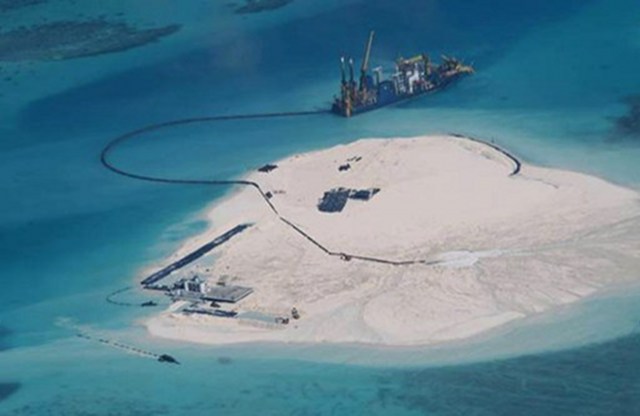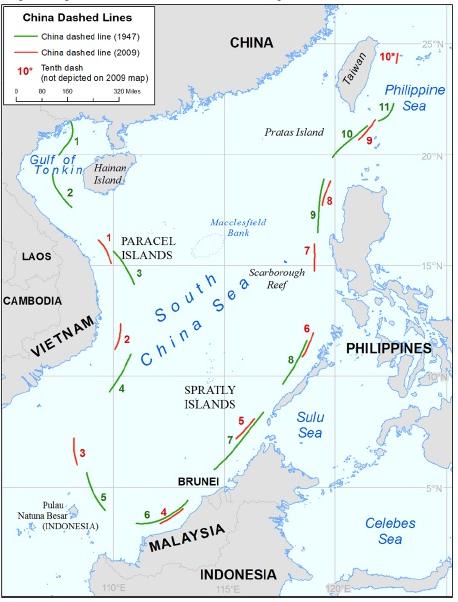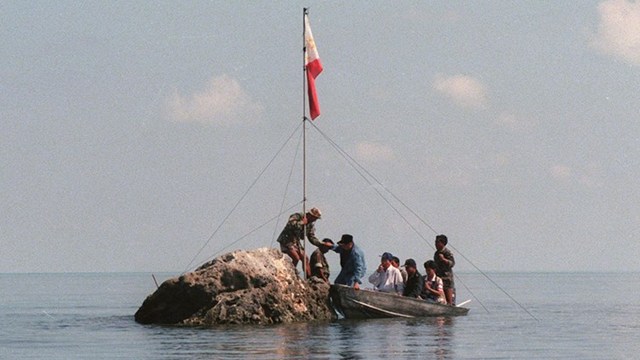Legal and foreign affairs experts say the outcome of the Philippines' arbitration case is uncertain, and Manila must work harder on diplomatic and military tracks

LEGAL GAMBIT. The Philippines takes China to court. Will it get the Asian superpower to comply with a ruling favoring Manila? File photo by Ritchie B. Tongo/EPA
In the so-called David versus Goliath disputes in the South China Sea, China holds the sticks and carrots. From gunboat to money diplomacy, it seizes the upper hand over its smaller neighbors. Yet the Philippines is slinging its own stone: international law. How far will this shot go?
Yet China rejects the case and snubs a December 15 deadline to respond. Its refusal to participate sparks questions on whether Beijing will comply with a decision favorable to the Philippines. If not, will Manila get the “enduring solution” it is after?
“There’s not as much of a benefit as you might imagine. It seems very powerful. It’s a legal case. It’s not futile but it’s hard to imagine the perfect outcome for the Philippines happening – China saying, ‘Oh sorry, we’ll comply,’” said American international law professor Julian Ku of Hofstra University in New York.
Ku and foreign affairs experts tell Rappler that questions on the enforcement of the ruling, and the tribunal’s power to decide the case make the Philippines’ legal gambit uncertain. They say the Philippines must work harder on other channels to make the case effective, and to keep the Asian giant at bay.

CHINA’S RECLAMATION. The Philippines releases this photo in May of China’s alleged reclamation in Johnson South Reef in the South China Sea, warning it may be building an airstrip. Photo courtesy of the Department of Foreign Affairs
The row over the South China Sea spans decades and successions of leaders. China, the Philippines, Vietnam, Malaysia, Brunei and Taiwan contest the strategic sea where around half of the world’s freight cargo passes, and the site of coveted fishing areas, and potential rich deposits of oil and gas.

NO BASIS. Legal scholars worldwide say China's 9-dash line is ambiguous and has no legal basis. Map courtesy of the US State Department
After protracted negotiations and military skirmishes, the Philippines’ legal case is a novel tack. In January 2013, the Aquino administration brought China to arbitration under the 1982 United Nations Convention on the Law of the Sea (UNCLOS). Manila and Beijing are parties to UNCLOS, known as the constitution for oceans and seas.
A lawyer with experience in international litigation and arbitration, Ku said the case was initially a game-changer.
“It’s the first time this process has been used for any topic in relation to the South China Sea. The reason why it’s also important is China has never been involved in any type of international litigation involving sensitive topics like this. It’s a big test for the law of the sea, and also for China,” Ku told Rappler in an interview in Long Island, New York.
Yet the professor said that arbitration works best when both parties agree to have the tribunal settle the dispute. China believes the tribunal has no jurisdiction or power to decide the case.
Ku said China’s stand is “oddly disrespectful.” After all, it opted into the treaty. “Even if the tribunal does not have jurisdiction, they at least have the power to decide whether or not they have the power. It’s a little circular but China agreed to at least that much. But by not participating even in that process, it’s disrespectful.”
Clark Alejandrino, former director of Ateneo de Manila University’s Chinese Studies Program, explained why Beijing is averse to having an international body rule on the dispute.
“China feels no need to seek a third party. It has the ability to assert sovereignty through their military and clearly, we don’t. It also sets a precedent. If they submit to arbitration here, they will have to do so in other territorial disputes and they don’t want that,” said Alejandrino, now a history doctoral student in Georgetown University in Washington DC.
The case also surprised China because President Benigno Aquino III took the “hard line” and challenged its “consistent strategy” to keep its sea claims ambiguous.
“It represents a very distinct break from the past,” Alejandrino said. “This is not what previous administrations did. There have been conflicts but each side would try to minimize the media attention, exchange a few diplomatic barbs, but it would die down. But this one is different, precisely because Aquino has not backed down.”
While his predecessors agreed to joint exploration, Aquino insists it is high time to settle the row. The President ordered the filing of the case after China seized Scarborough Shoal following a tense standoff in 2012. That same year, his government renamed the parts of the sea it claims as the “West Philippine Sea.”
“This problem has been put on the back burner for far too long and that’s why in the Philippines’ case, we want a resolution for this,” Aquino said.

CASE TRIGGER. The Philippines’ counsel Paul Reichler says China’s seizure of Scarborough Shoal in 2012 was ‘the proverbial straw that broke the camel’s back’ which led to the filing of the case. 1997 AFP photo of Scarborough Shoal
The Philippines is banking on arbitration to resolve the dispute. To win, it has to convince the tribunal on two fronts: jurisdiction and merits. What are the odds?
Sean Mirski, Supreme Court Chair of the Harvard Law Review, summarized the Philippines’ claims as follows in an article in the journal The National Interest:- That China’s 9-dash line is unlawful under UNCLOS
- That many maritime features claimed by China do not generate a 200-nautical mile exclusive economic zone (EEZ) as Beijing asserts
- That China repeatedly violated the Philippines’ rights under UNCLOS
Unable to support human or economic life, rocks only generate a 12-mile territorial sea under UNCLOS. Above water at high tide, islands generate an EEZ where a state has the exclusive right to explore and exploit resources like fish, oil, and gas.
China argues that the Philippines cannot ask the tribunal to decide on the nature of the features without first determining who owns them. The catch is that territorial sovereignty is beyond the scope of the sea treaty.
Another Chinese argument on jurisdiction is that asking the court to recognize the maritime features as part of the Philippines’ EEZ is tantamount to what is called maritime boundary delimitation. When it ratified the treaty in 1996, China identified maritime delimitation as an exception to dispute settlement.
Ku said that sovereignty and maritime delimitation are Manila’s main obstacles.
“The weakness with the Philippines’ position is that everyone knows and the Philippine government itself sometimes calls this essentially a sovereignty or territorial dispute. At the heart of this is ultimately, does China or the Philippines have sovereign rights to these different features in the South China Sea? Those kinds of questions cannot be heard by the tribunal,” Ku said.
While jurisdiction is under question, the Philippines has a strong case on the merits of its focal claim: China’s 9-dash line. Philippine Supreme Court Senior Associate Justice Antonio Carpio brands the line “utterly without basis in international law.” This is the consensus of legal experts worldwide, which the US asserted in a recent study.
China’s absence does not mean the process is faulty or one-sided. UNCLOS requires the tribunal to study Beijing’s position, detailed in books, journals, and a position paper whose release it timed right before the deadline. Unlike in US cases, a party cannot win by default.
The tribunal is expected to decide in early 2016. Ku foresees 3 scenarios for the arbitral award or ruling: no jurisdiction, full jurisdiction, and a split decision.
“The worst case scenario is the Philippines will lose on jurisdiction. This shouldn’t affect the merits of their claims, though. For China, the worst case scenario is that it loses on the merits and would have to face the decision of whether to comply with the tribunal.”
http://www.rappler.com/nation/77910-philippines-arbitration-china-analysis

No comments:
Post a Comment
Note: Only a member of this blog may post a comment.